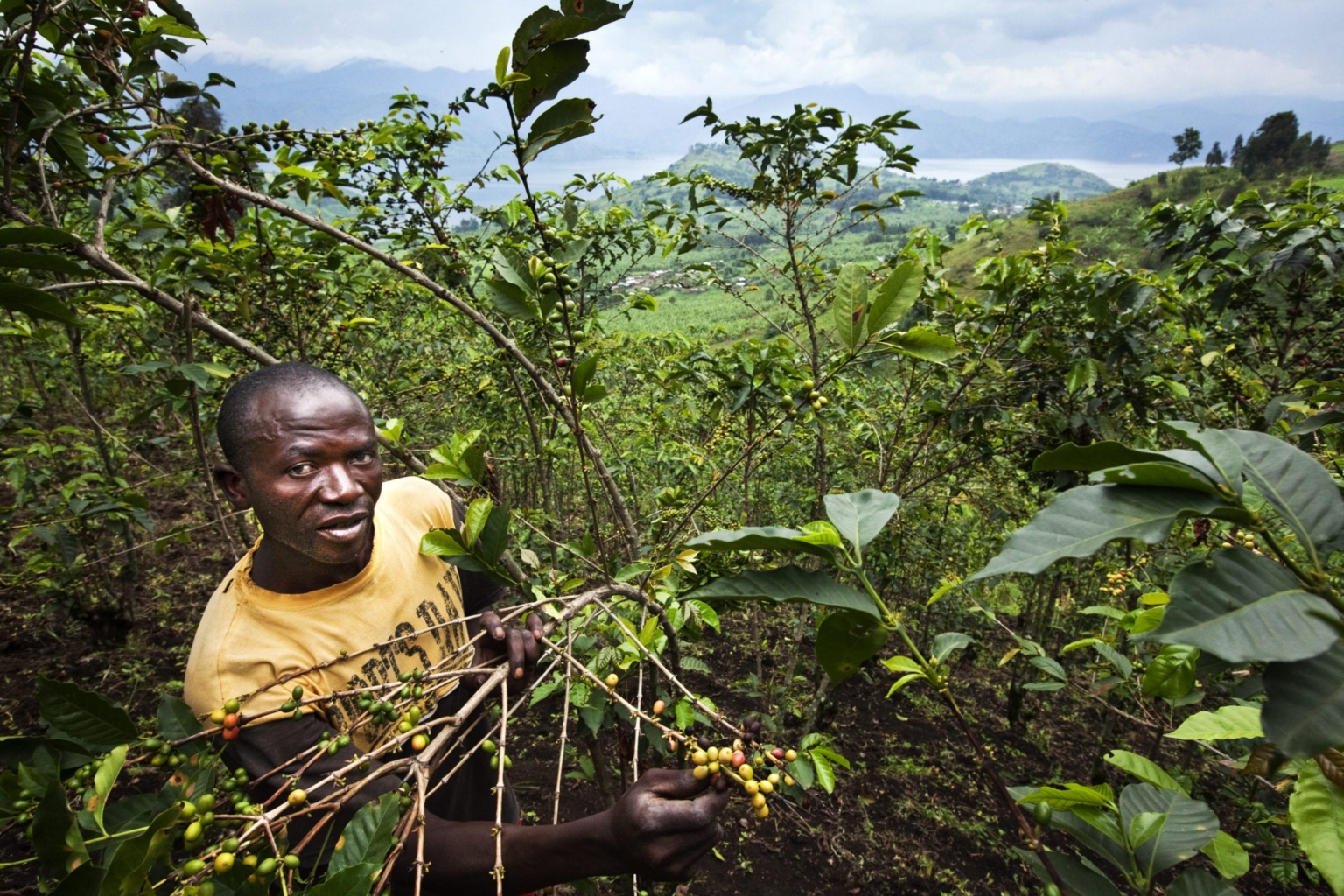
Sopacdi
- fast-growing cooperative of 12,000 small-scale coffee farmers
- invests in quality and women's liberation
- commits to agro-ecology as well as specialty coffee
- sells organic arabica coffee to Oxfam
Perfect soil for top-tier coffee
For decades, armed groups have been fighting over the minerals and raw materials in the Kivu region of Congo, near the border with Rwanda. Cooperatives such as Oxfam partners Sopacdi, Muungano and Rebuild Women’s Hope work tirelessly to put their region on the map for the right reasons.
They are seeing to it that the residents of Kivu can earn their daily bread with the bounty of the region’s rich soil, namely arabica coffee of world-renowned quality. The volcanic soil, climate and altitude here, just off of Lake Kivu, are excellently suited to its cultivation. And the taste of these coffees is unmistakably fruity with a pronounced acidity.
Development cultivated by fair trade
Fair-trade coffee is lifeblood here in Kivu. Thanks to this coffee the farmers can earn more, we can set up health centres and build schools in the most disadvantaged villages.
Joachim Munganga, chairman of Sopacdi
Investing in quality
Simply having the ideal growing conditions is not enough to produce quality coffee. Sopacdi understands this better than anyone. Since its founding it has done everything it can to ensure the processing of the coffee beans can also proceed under ideal circumstances.
- Since 2010 Sopacdi has constructed three washing stations for coffee beans. The cooperative has also built its own office and a large storage depot.
- They purchase additional drying tables as often as they can. The more drying tables the cooperative has, the more coffee they can dry in the sun and the higher the quality of that coffee.
- The cooperative has its own quality control lab with a well-trained coffee taster. This allows Sopacdi to closely monitor and adjust the quality of its end product.
- Sopacdi organises training courses for the farmers. This ensures that the quality of the coffee can continue to improve and production can become more environmentally friendly (utilising strategies such as soil conservation, composting, shade trees, etc).
Emancipation through fair-trade cultivation
Sopacdi & Oxfam
- Oxfam Fair Trade has been buying arabica coffee from Sopacdi since 2010. We and the English fair trade organisation Twin (which has since become part of Sustainable Harvest) were the cooperative’s very first clients.
- In the same period we helped to establish a relationship between Sopacdi and the Belgian Development Agency. “With these subsidies we launched a project that brought about a swell in production”, says Joachim Munganga of Sopacdi.
- Oxfam Fair Trade continues to guide Sopacdi in its quest to increase its revenues from the international market. Such as by inviting a representative to join us to Biofach, the most important international trade fair for organic food. Here Sopacdi was able to make contact with new clients.